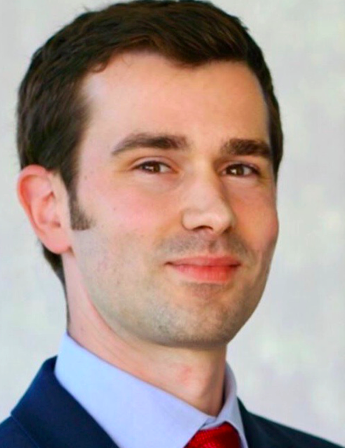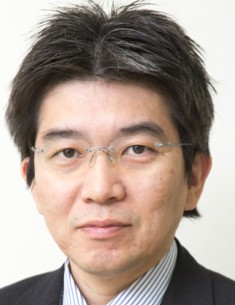Co-Located Conference AgendasLab-on-a-Chip & Microfluidics, Point-of-Care Diagnostics & Global Health Asia 2017 | Next Generation Sequencing in the Clinic Asia Summit 2017 | 

Thursday, 30 November 201708:00 | Conference Registration, Materials Pick-Up, Morning Coffee and Breakfast Pastries | |
Session Title: NGS into the Clinic, Challenges and Opportunities |
| | 11:00 |  | Keynote Presentation The Unique Challenges and Opportunities of Circulating Tumor DNA
Dan Klass, Principal Scientist, Oncology Assay Development, Roche Sequencing Solutions, United States of America
Genetic heterogeneity both within and among tumors from different patients serves as a formidable barrier to current cancer therapies, and for most solid tumors the assessment of clinical response to treatment regimens may occur much later than the loss of therapeutic efficacy or the emergence of resistance. Additionally, for the majority of cancers, there are no in vitro diagnostic assays to detect minimal residual disease after definitive therapy. Liquid biopsy has the potential to enable the proactive, personalized future of cancer treatment—but there are several unique technical challenges to the next generation sequencing of circulating tumor DNA (ctDNA). Traditional approaches to sample collection, DNA isolation, library preparation, target enrichment, sequencing, and analysis are often inadequate when faced with the difficulties of liquid biopsy. Emerging workflows combining improved assay efficiency with advanced molecular biology and bioinformatic error suppression methods allow the investigation of new clinical research questions. Early results from these approaches hint that the heralded vision of the future of oncology may be within reach. |
| 11:30 |  | Keynote Presentation Exome Analysis of Long QT Syndrome
Toshihiro Tanaka, Professor, Tokyo Medical and Dental University (TMDU), Japan
As we understand from variations in individual's height, weight, character or looks, HUMAN is DIVERSE in every aspect. From the clinical point of view, it is one form of the expression of human diversity that every patient diagnosed as the same disease does not respond equally to the same therapy. While human diversity is composed of complex combination of differences in environmental and genetic factors, genetic epidemiology focuses on revealing genetic backgrounds of clinical status including the disease itself, drug responses or adverse effects. Genome-wide association study (GWAS) and comprehensive sequencing approaches including Whole Exome Sequencing Analysis (WES) have been among the main analytic tools in this methodology. Recent progress in the genetic fields of arrhythmias have revealed the potent roles of genetic factors in the pathogenesis of both inherited and common arrhythmias, and some of the research results have been applied to clinical fields. In this talk, genetic analyses of long QT syndrome (LQTS), an arrhythmogenic disorder that can lead to sudden death will be shown as one example. To date, mutations in 15 LQTS-susceptibility genes have been implicated. However, the genetic cause for approximately 40% of LQTS patients remains elusive. We performed whole-exome sequencing analyses on 59 LQTS and 61 unaffected individuals in 35 families and 138 unrelated LQTS cases. Although no novel commonly mutated gene was identified other than known LQTS genes, protein-protein interaction (PPI) network analyses revealed ten new pathogenic candidates that directly or indirectly interact with proteins encoded by known LQTS genes. Five of the newly identified candidates directly interact with calmodulin. These results suggest an important role of calmodulin and its interacting proteins in the pathogenesis of LQTS that might be an anchoring point for novel drug development as well as novel diagnosis. |
| 12:00 | The Next Generation Non-Invasive “Liquid Biopsy” for Cancer Management
Ting-Yuan Tu, Assistant Professor, Department of Biomedical Engineering, National Cheng Kung University, Taiwan
Cancer accounts for millions of deaths worldwide each year, where metastases are responsible for 90% of cancer related deaths for most patients. Circulating tumor cells (CTCs) are sought to play a critical role in the metastatic process. In the recent decade, CTCs as a liquid biopsy material offers a simple and less invasive means to complement the current standard of multiple tissue biopsies or when biopsy material is absent or inadequate. Besides, CTCs provide information on the metastatic aggressiveness and molecular insights of the primary tumor or foreboding metastatic lesion. In this talk, I will review the development of analyses of CTCs. (1) The methodologies used for enrichment of CTCs and (2) clinical applications of enriched CTCs will be presented. I will demonstrate a label free and automated CTC enrichment system, the ClearCell® FX, leveraging an elegant microfluidic technology to offer a new perspective in clinical cancer diagnostics. Consistent and reproducible recovery of CTCs from prostate, breast and lung cancer will be demonstrated. Ultra-high purity, molecular analyses and other applications on CTCs will also be reported. | 12:30 | Networking Lunch in the Exhibit Hall -- Meet the Exhibitors and View Posters | 13:30 | The Utility of Whole Exon Sequence in Rare Muscular Diseases
Yen-Lin Chen, Division of Molecular Pathology, Cardinal Tien Hospital School of Medicine, Fu-Jen Catholic University, Taiwan
There are around 150~200 different genes involved in muscle primary diseases. In addition, most of these muscular diseases have incidence lower than 1/10,000 which termed rare diseases. The whole exon sequence is the suitable solution for genetic diagnosis in theses disease and make more valuable in differential diagnosis which are very difficult in clinical presentation. We will share the experience of the clinical genetic diagnosis in these rare muscular diseases by whole exon sequence. | 14:00 | Pharmacogenomics: A Key Component of Precision Medicine
Wei Ding, Chief Scientific Officer, Admera Health, China
| 14:30 | Next-Generation Sequencing (NGS) for Mendelian Disease Diagnosis, Precision Medicine and Novel Disease-Causing Gene Discovery
Pei-Lung Chen, Associate Professor and Attending Physician, National Taiwan University Hospital, Taiwan
NGS has become much more affordable, which allows clinical applications of genome-scale data. In the near future, NGS, especially whole genome sequencing (WGS), will greatly reshape our view and practice of precision medicine. In this presentation, Dr. Pei-Lung Chen will share his experience in applying NGS to genomic medicine and clinical genetic testing at National Taiwan University Hospital during the latest years. Dr. Chen will start from panel-based NGS diagnosis, and end with WGS-based diagnosis. It is now clear that sequencing is only one perspective of a more complex story. Advanced genomics analysis, including standard bioinformatics pipeline and possible artificial intelligence (AI)-assisted approaches, promises better outcome of clinical applications as well as precision medicine. | 15:00 | Detection of Previously Unidentified Structural Variants Involved in Glioblastoma Using PacBio® Sequel™ Sequencing
Jing Chen, NGS Business Line Leader, GENEWIZ China, China
Glioblastoma is a devastating disease due in part to its often late-stage diagnosis, rapid progression, and poor survival rates. This casestudy looks at how GENEWIZ utilized the PacBio® Sequel™ long-read technology to help a customer improve detection of structural variants within glioblastoma samples.
This Case Study discusses:
- Generation of thousands of long-reads using PacBio Sequel Single Molecule Real Time (SMRT) technology
- Generation of highly accurate consensus sequences
- Identification of approximately 20,000 structural variants
- Future applications
| 15:30 |  Monitor Immune Responses in Tumor Microenvironment by Next Generation Sequencing Monitor Immune Responses in Tumor Microenvironment by Next Generation Sequencing
Dennis Huang, Product Manager, Thermo Fisher Scientific
The composition of tumor microenvironment (TME) is highly variable and complex, it often found related to drug response, such as immune checkpoint or CAR-T therapy. How to characterize the TME in an efficient way become more and more important. Besides tumor cells, certain types of cells from immune system plays a critical role when fighting cancer, for example, dendritic cells (DCs) and T cells are capable of activating anti-tumor responses. However, certain cancer cells may induce an immunosuppressive reaction in TME and then weaken the anti-cancer responses even one is treated with immunotherapy. During the session, we will be discussing our latest NGS panel Oncomine Immune Response Research Assay and Ion Ampliseq Immune Repertoire Assay, which can facilitate the research to understand the TME, in order to help resolves the issues and even to predict the responses to immunotherapies.
| 16:00 |  Clinical Whole Genome Sequencing, The Final Frontier Clinical Whole Genome Sequencing, The Final Frontier
Tom Berkovits, Director Market Development, Clinical Genomics, Asia Pacific, Illumina
Unprecedented advances in genome sequencing technology are significantly changing scientific research, drug development, and clinical care. Just over a decade after the first human genome was sequenced, an entire human genome can now be sequenced in a few days. Coupled with a dramatic decline in sequencing cost, the technology has moved from the cutting edge of science to a transformative technology, promising to benefit virtually every area of human health. Genome sequencing offers significant advances in our understanding of disease, leading to a new era of precision medicine in which health care can be tailored to the molecular makeup of an individual. Illumina’s mission is to improve human health by unlocking the power of the genome. The introduction of cWGS is enabling this mission to become a reality, using the latest NGS technology to increase diagnostic yields, shorten time to definitive diagnoses and simplify test selection.
| 16:30 | Diagpipe: An Ultra-Fast NGS Analysis Pipeline to Help Rapid Diagnosis and Clinical Interpretation
Adam Yao, Research Scientist, Academia Sinica, Taiwan
Next-generation sequencing (NGS) is becoming the main technology for molecular diagnosis in clinical laboratories. However, a single exome can result in approximately 10 Gigabytes of data and sequencing a single genome can result in approximately 200 Gigabytes. As a result, bioinformatics easily becomes the single largest bottleneck in the routine implementation of next generation sequencing in clinical practice. Diagpipe with optimized design and implementation enables rapid diagnosis of rare disease so that an adequate course of management and treatment can be applied within days if not hours and therefore reduces the medical cost and potentially saves lives. | 17:00 | Clinical Cancer Research via Integration of Next Generation Sequencing and Proteomic Technologies in Taiwanese Oral Squamous Cell Carcinoma
Yu-Sun Chang, Chair Professor, Graduate Institute of Biomedical Sciences, and Molecular Medicine Research Center, Chang Gung University, Taiwan
Oral squamous cell carcinoma (OSCC) is a prominent cancer worldwide, particularly in Taiwan. By integrating omics analyses in 50 matched samples, we uncover in Taiwanese patients a predominant mutation signature associated with cytidine deaminase APOBEC, which correlates with the up-regulation of APOBEC3A expression in the APOBEC3 gene cluster at 22q13. APOBEC3A expression is significantly higher in tumors carrying APOBEC3B-deletion allele(s). High-level APOBEC3A expression is associated with better overall survival, especially among patients carrying APOBEC3B-deletion alleles, as examined in a second cohort (n=188; p=0.004). Interestingly, the high frequency (50%) of APOBEC3B-deletion alleles is detected in OSCC-Taiwan samples, but not in OSCC-TCGA samples (5.8%, n= 314). Through the integrated omics analyses, we thus identify a frequent APOBEC mutational profile, which relates to a APOBEC3B-deletion germline polymorphism in Taiwanese OSCC that impacts expression of APOBEC3A, and is shown to be of clinical prognostic relevance. Our study emphasizes the importance of integration of multiple omics data for cancer precision medicine research in the future. |
|


 Add to Calendar ▼2017-11-30 00:00:002017-11-30 00:00:00Europe/LondonNext Generation Sequencing in the Clinic Asia Summit 2017Next Generation Sequencing in the Clinic Asia Summit 2017 in Taipei, TaiwanTaipei, TaiwanSELECTBIOenquiries@selectbiosciences.com
Add to Calendar ▼2017-11-30 00:00:002017-11-30 00:00:00Europe/LondonNext Generation Sequencing in the Clinic Asia Summit 2017Next Generation Sequencing in the Clinic Asia Summit 2017 in Taipei, TaiwanTaipei, TaiwanSELECTBIOenquiries@selectbiosciences.com